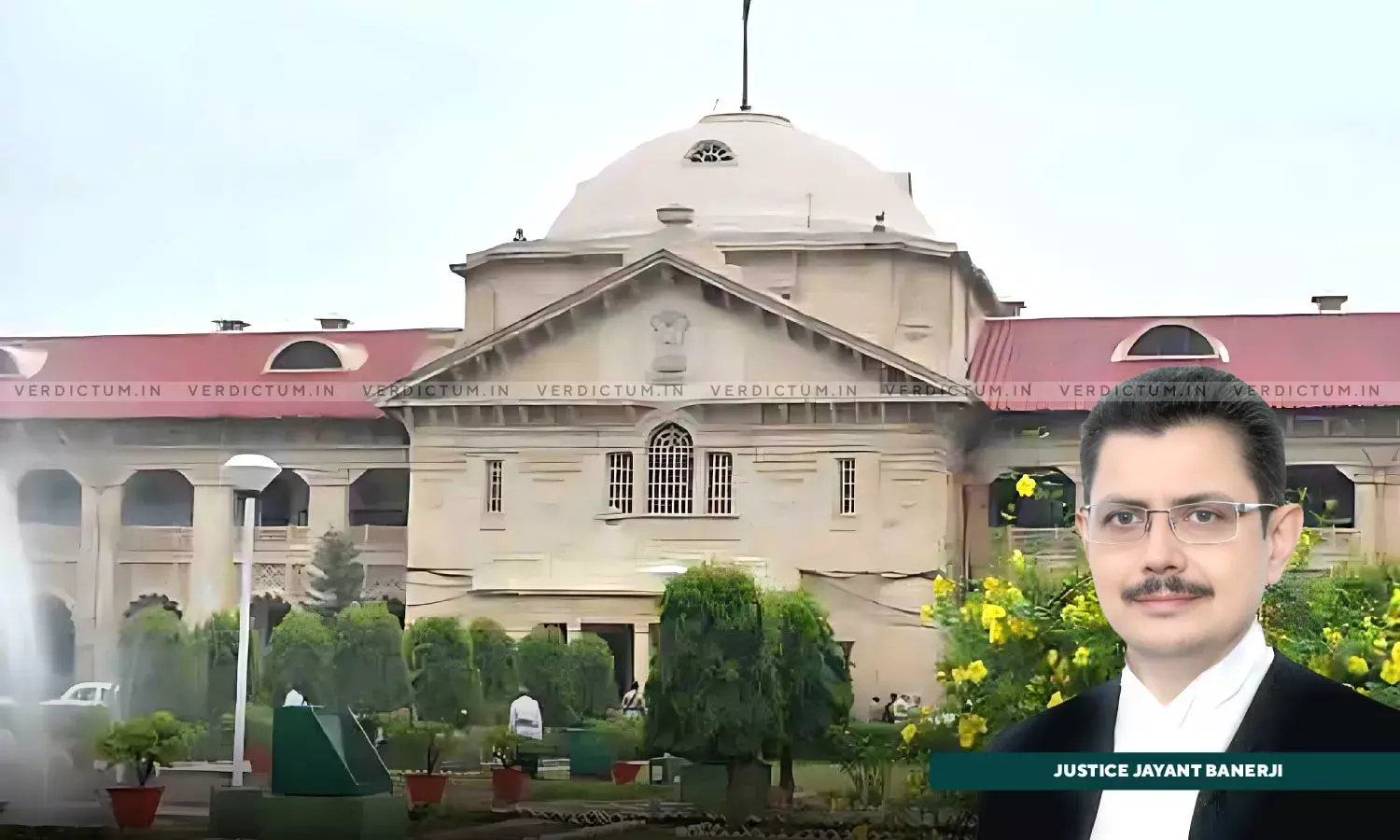Jointly Filed Written Statement Cannot Be Amended At The Behest Of One Or More Signatories Without Express Consent Of Others: Allahabad HC

The Allahabad High Court held that a jointly filed written statement cannot be amended at the behest of one or more signatories to the joint written statement without express consent of others to the amendments sought.
The Court clarified that in cases where a ground of defence was raised in an amendment application that appears to reflect the interest of each of the signatories who had filed the joint written statement, the consent of those signatories, who had not moved that amendment application, would be required.
A Single Bench of Justice Jayant Banerji observed, “There may be various other instances where a serious anomaly may be created by one defendant filing an amendment application leading to jeopardizing the rights and interests of other defendants, who join in filing a written statement…Where a written statement is jointly filed by a group of defendants, it cannot be amended at the behest of one or more such defendants unless the other defendants who are signatories to the joint written statement, expressly consent to the amendments sought.”
Advocate Tarun Agrawal represented the petitioners, while Advocate Rahul Agarwal appeared for the respondents.
The Court had to determine whether an amendment application by one or more defendants would be maintainable, to amend a joint written statement which amendment may reflect the interests of each of the defendants who had filed the joint written statement.
Seven family members got into an agreement in 1987 for the construction of godowns on a piece of land. The agreement outlined the pooling of resources and co-ownership arrangements for the constructed properties. After the demise of one of the members, another agreement was executed in 1996 concerning the same land and godowns.
The plaintiffs filed a suit seeking an injunction against the defendants, alleging unilateral actions in letting out the properties. The defendants filed an amendment application in 2022 under Order VI Rule 17 CPC, seeking to amend the written statement. He claimed the existence of a will made by the demised members, which purportedly influenced the 1996 agreement.
“There cannot be a cavil about the legal proposition that while considering an amendment application, a court ought not to enter into the merits of the amendment itself, but rather confine its inquiry for the purpose of determining whether the same is necessary for the purpose of determining the real question in controversy between the parties; to determine that the application is not malafide or an attempt to delay the proceedings; and to determine that the defendant is not attempting to set up a case that would rescind an admission made by him in the written statement,” the Court remarked.
Accordingly, the High Court dismissed the petition.
Cause Title: Smt. Chanda Kedia & Anr. v. Dwarika Prasad Kedia & Anr. (Neutral Citation: 2024:AHC:65964)
Appearance:
Petitioners: Advocate Tarun Agrawal
Respondents: Advocates Suresh Singh, Rahul Agarwal and Ritesh Singh

